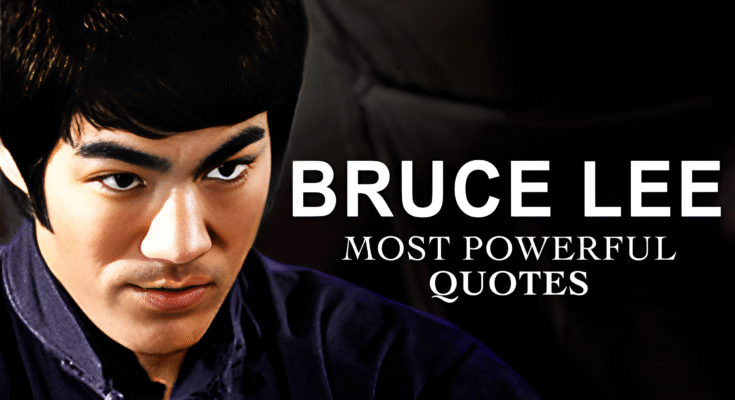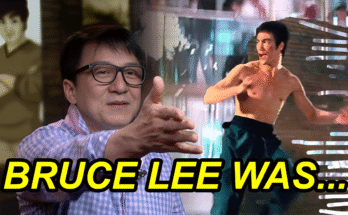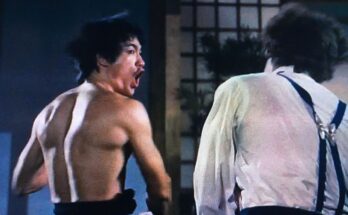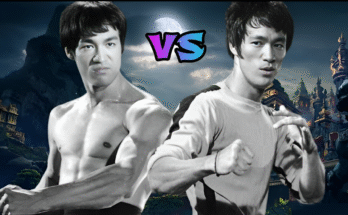More than half a century after his death, Bruce Lee remains one of the most influential figures in popular culture—not only for his revolutionary impact on martial arts and cinema but also for his profound philosophy. While the world remembers him for his explosive speed, cinematic charisma, and martial arts mastery, it is his words that continue to inspire and challenge generations across cultures and disciplines.
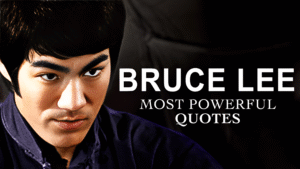
Bruce Lee was not simply a fighter or film star. He was a deep thinker, a philosopher who fused Eastern spirituality with Western practicality. His insights into life, discipline, identity, and personal growth have transcended time, finding relevance in classrooms, boardrooms, gyms, and everyday conversations. His writings, drawn from personal journals, interviews, and film dialogues, have become modern mantras for those seeking purpose and power.
One of his most iconic teachings is, “Be water, my friend.” This quote, which emerged from a 1971 television interview, has become synonymous with Lee’s philosophy. He urged people to adopt the qualities of water—adaptable, formless, and unstoppable. Water doesn’t resist; it flows around obstacles, yet has the power to erode stone. In a world that demands constant change and flexibility, this simple metaphor resonates with both spiritual seekers and business leaders alike.
Another of Lee’s enduring quotes is, “Knowing is not enough, we must apply. Willing is not enough, we must do.” This statement cuts to the heart of modern struggles with procrastination and overthinking. For Lee, true understanding required action. Knowledge without execution meant nothing. His life reflected that ideal—every physical motion was backed by intention, discipline, and relentless application.
Perhaps one of the most quoted lines in the sports and personal development world is: “I fear not the man who has practiced 10,000 kicks once, but I fear the man who has practiced one kick 10,000 times.” In this, Lee speaks to the importance of mastery through repetition. Rather than chasing variety or novelty, greatness lies in perfecting the fundamentals. Focus, discipline, and persistence—these are the traits Lee valued above flair or complexity.
His teaching, “Absorb what is useful, discard what is not, add what is uniquely your own,” reflects not only his approach to martial arts but to life itself. This quote forms the basis of Jeet Kune Do, the martial philosophy he founded. It encourages openness, curiosity, and personal evolution—taking wisdom from all sources while shaping it into something authentic and individual. In an age of conformity and noise, Lee’s voice calls for originality and self-expression.
Then there is the defiant and empowering statement, “To hell with circumstances; I create opportunities.” This line encapsulates Lee’s personal journey as a Chinese-American actor trying to break into a Hollywood system riddled with racial prejudice. Rather than wait for a role to come to him, he created his own films, wrote his own scripts, choreographed his own fights, and directed his own stories. He refused to be boxed in by limitation—choosing instead to forge his own path.
Bruce Lee’s quotes endure because they are more than inspirational soundbites. They are reflections of a man who refused to accept boundaries, who believed in the power of human potential, and who lived every moment with intensity and purpose. His words challenge us to be better—not only physically, but mentally and spiritually.
In today’s world, where self-doubt, distraction, and fear often cloud personal progress, Bruce Lee’s voice is more relevant than ever. His philosophy reminds us that strength is not merely physical, that identity is not fixed, and that power comes from clarity, action, and unwavering belief in oneself.
Whether you’re standing on a stage, facing a fight, or navigating quiet personal battles, Bruce Lee’s words echo across time with remarkable force. His greatest legacy may not be in the punches he threw—but in the ideas he left behind.
